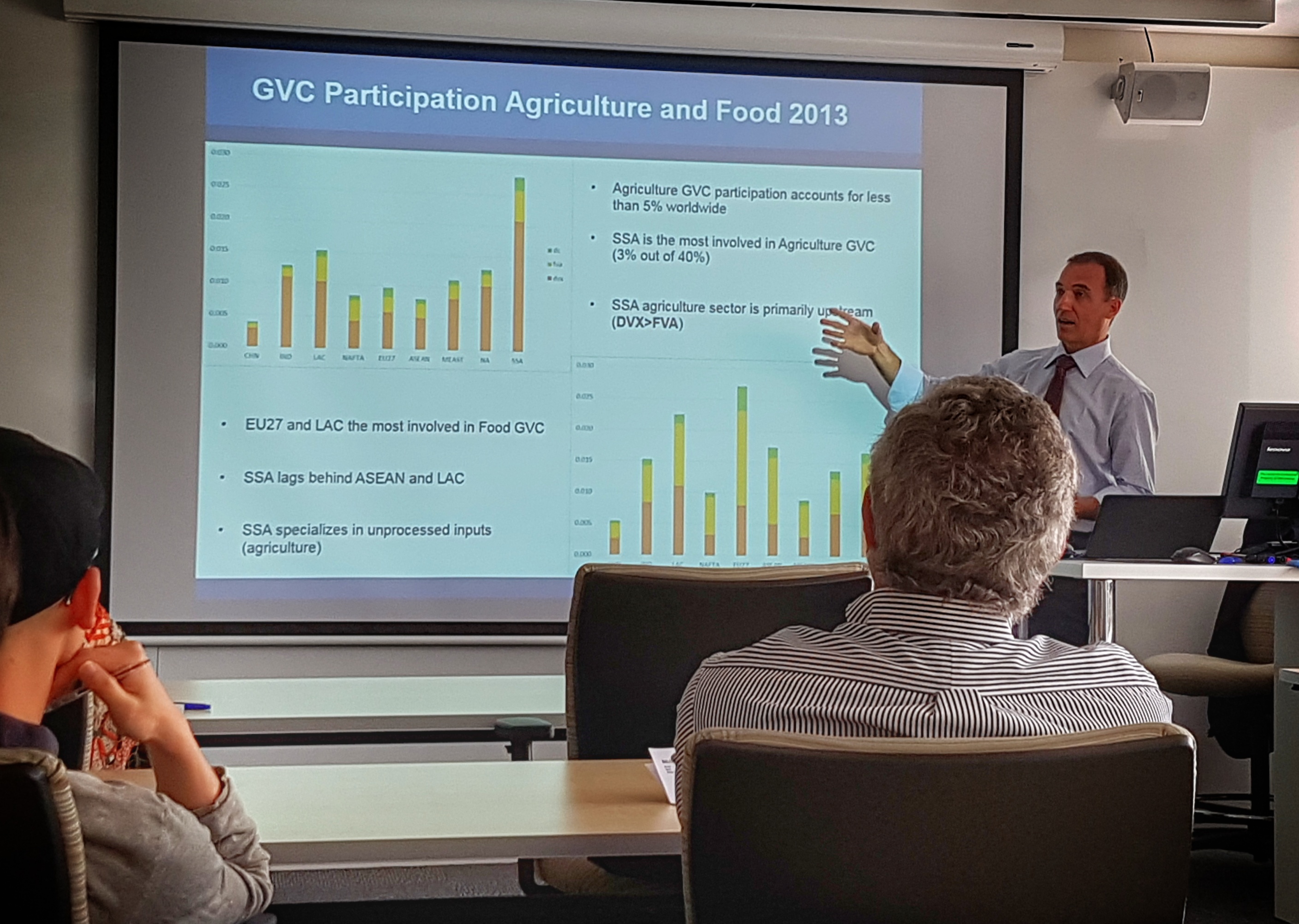Dr. Jean Balié, leader of the Monitoring and Analysis Food and Agricultural Policies (MAFAP) program in the Agricultural Development Economics (ESA) Division of FAO, was the latest prominent researcher to give a seminar at the Centre for Global Food and Resources, which was co-hosted with the AARES-SA branch. Dr. Balié’s seminar focused on his research on participation, determinants and trade policy in Sub-Saharan Africa.
 Motivating this research is recent literature highlighting the key role of economic integration as a driver for rural transformation of African economies; and the common perception that Africa, contrary to Latin America, Asia, and China in particular, has neither been able to integrate the main changes in trade patterns nor enter massively into global production networks.
Motivating this research is recent literature highlighting the key role of economic integration as a driver for rural transformation of African economies; and the common perception that Africa, contrary to Latin America, Asia, and China in particular, has neither been able to integrate the main changes in trade patterns nor enter massively into global production networks.
Using the EORA Input-Output Tables, Dr. Balié and his co-authors applied the bilateral gross exports decomposition method provided by Wang et al. (2013) and analysed the Global Value Chain participation and position of Sub-Saharan African (SSA) countries in Agriculture and Food industries.
 Results show that, despite the low trade shares at the global level, SSA countries are deeply involved in Global Value Chain participation and the relevance of their international linkages is increasing over time, although still limited to upstream (likely unprocessed) production stages of the chain.
Results show that, despite the low trade shares at the global level, SSA countries are deeply involved in Global Value Chain participation and the relevance of their international linkages is increasing over time, although still limited to upstream (likely unprocessed) production stages of the chain.
Furthermore, looking at the bilateral trade in value added, results showed that the demand pull for SSA agricultural production is not regional but mainly driven by the EU and emerging countries.
Finally, using a “gravity-like” approach, the research provides empirical evidence that bilateral trade protection is a key determinant of the heterogeneous participation and position of SSA countries in agro-food Global Value Chains, implying a so-called chain effect affecting both backward and forward linkages.
This work opens the ground to a refinement of the optimal policy to maximise the hoped benefits for Africa of the so-called “unbundling revolution” going beyond the simple narrative of “upgrading for compete”.

